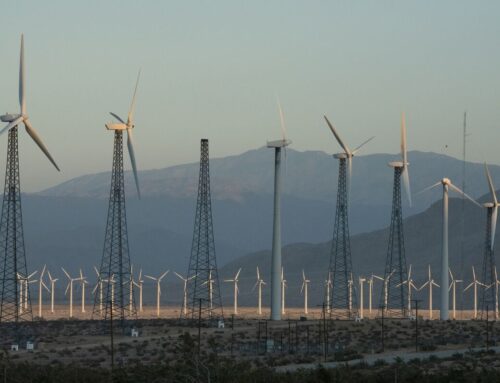New Environment Hub underscores commitment to impact journalism
April 6, 2025
Florida is a rich locale for environmental coverage. It is ground zero for climate change, as increasingly destructive and devastating hurricanes wreak havoc up and down the state. The consequences are borne out by rising seas and sunny day flooding, by dying coral and ever-more potent red tide plumes. Pollution and other threats to a healthy environment surround us.
That’s why we’re announcing the creation of the Environment Hub at the Tampa Bay Times, where we’ve defined the topic as a core area of coverage for you. We want to ensure we always have the reporting firepower to produce distinctive and meaningful journalism to serve Floridians.
To start, the hub includes a team of four primary reporters and a coordinating editor, who work at the Times. Other journalists in our newsroom will contribute to build deeper and sustained coverage of the environment. We’d love to see this team get even bigger. The more journalists we have devoted to the subject, the more news and information we can deliver.
How important is environmental coverage in our view?
We devoted more than a year to our latest investigation, Wasting Away, published this week. It shows the immense toll that pollution takes on Florida’s waterways. Reporters Zachary T. Sampson, Shreya Vuttaluru and Bethany Barnes found that the state has failed to control pollution seeping into rivers, lagoons, lakes and bays. Millions of dollars spent to reduce contamination has proven ineffective, and the ramifications have been immense. More than 89,000 acres of seagrass has withered and died, our reporters found, because of excessive amounts of phosphorus and nitrogen emanating from farms, developments and golf courses. The decimation of seagrass spawned a “die off” of the state’s beloved manatees. They starved because algae blooms caused by excessive pollution destroyed their main food source.
Or consider the drumbeat of stories from Max Chesnes and Emily L. Mahoney in 2024, exposing the state’s secret efforts to transform state parkland into golf courses, pickleball courts, hotels and disc golf. Our coverage mattered, leading to the rarest of things in Florida — strenuous bipartisan opposition. After Gov. Ron DeSantis ultimately backed down, his former director of state parks praised our reporters, noting that “without the light of good journalism, bad decisions are easily made.”
If not for the Times, the state’s treasured parks might have begun to look a lot different. And readers recognized this. “I am so glad for your hard work, tenacity and excellent reporting,” wrote one Times reader, “that led to a win for the people!”
Chesnes is one of the leading environment reporters in the Southeast, and Mahoney is the only dedicated energy reporter in Florida. They are key members of our Environment Hub along with Jack Prator and Michaela Mulligan, who have produced compelling enterprise reporting on climate, hurricanes, heat and local development over the past year.
The Times has a strong track record of covering environmental perils. Our coverage of the Piney Point catastrophe detailed neglectful practices by industry and by regulators. Our coverage of a Tampa company that poisoned its workers and contaminated the surrounding community won the 2022 Pulitzer Prize. Our 2022 series Rising Threat foreshadowed the increasing dangers posed by storm surge, which played out in horrifying fashion this past hurricane season. After Helene and Milton, a team of Times journalists chronicled widespread breakdowns of local sewage and stormwater infrastructure and how those failures impacted our communities.
We’ll deliver the latest news and information you need to know every morning.
Want more of our free, weekly newsletters in your inbox? Let’s get started.
With sustained funding, our team will continue to report on environmental issues around Tampa Bay and extending into farmland, lakes, springs and inland streams, where pollution and threats to species and habitat are front and center. Water quality is verging on a crisis across the state.
The Times relies on community support to continue our mission of informing the public and holding powerful interests accountable. Increasingly, this support to help further our mission comes from community grants and donations.
To help support the roughly $500,000 annual budget of our core team, we are raising funds from local family foundations and large philanthropic organizations.
“We believe that the Times, with its skilled journalists and commitment to local news, is a critical voice in protecting our fragile Florida environment,” said St. Petersburg resident Naomi Rutenberg, who along with her husband, Robert Burn, made a significant contribution. “That’s why we’re supporting the new Environmental Hub.”
There’s much work ahead.
Search
RECENT PRESS RELEASES
Related Post




